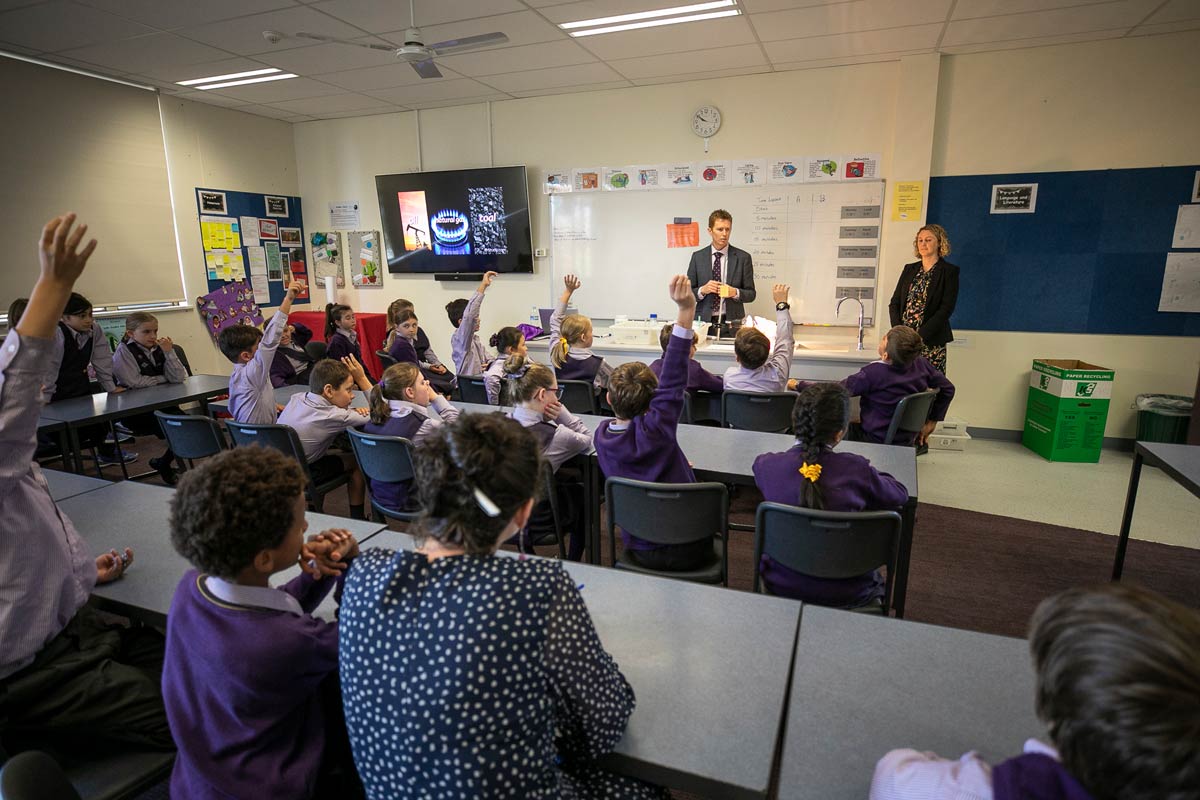<< Back to Lion August 2020
Collaborating to build teaching efficacy

Professional collaboration builds teachers’ efficacy and that benefits every student at Wesley, which is why our teachers work collectively on their teaching practice, as Ben Reeves and James Carroll explain.
Professional collaboration involves teachers in sharing, planning and evaluating their teaching practice but it also involves the development of frameworks and structures so that effective teaching practices are sustainable into the future – and putting students at the centre is the key. What does that look like at Wesley? Here we look at a few examples.
How can we best support students to understand what constitutes ‘great writing’ and, flowing from this, what teaching strategies will enable them to improve their writing? This has been the driving question for a team of International Baccalaureate Primary Years Program teachers in a professional inquiry group. The team began by building their knowledge of a research-based framework, the 6+1 traits of writing, which now underpins their shared understanding of the aspects that constitute great writing. By using a high-quality rubric mapped to that framework, the team then undertook a rigorous examination of student work samples, sparking substantial discussion about current student competencies and areas for improvement, followed by the collection, sharing, testing and refinement of effective classroom teaching strategies.
Discussion about developing teaching practice in the Middle and Senior Schools identified the need for a structure to sustain an ongoing focus on specific practices. After all, teaching practice is itself an evolving set of attitudes and behaviours. That discussion prompted the introduction of a one-hour Monday collaboration time in each two-week cycle so that teachers have a dedicated opportunity to discuss and evaluate their teaching practice in terms of both the practice itself and evidence of student performance. Staff work in small teams, comparing the progress of students with their identified specific intended learning outcomes for each student, then building learning activities that target students’ needs. By working together, staff have the opportunity to evaluate their teaching practice and build their skills together. This is clearly benefitting students but also increasing the individual efficacy of teachers as their teaching practices grow, both by supporting colleagues and having the support of colleagues.
Professional collaboration is apparent in many other forms. Reading groups meet to discuss the practical applications of big ideas in teaching and learning. Open classroom days enable teachers to share their teaching practice with colleagues who are able to observe in an unintrusive and non-judgemental way. Visiting teachers experience different ways of teaching students and can compare these experiences with their own, giving them a chance to reflect and take away ideas to try. 'Teachmeets' provide a fast-paced and dynamic platform for sharing innovative classroom practice – in only seven minutes.
Our goal is to continue to deepen collaborative inquiry that trials, tests and evaluates our teaching practices to give all students the most effective learning opportunities possible. Wesley teachers have always developed their teaching practices as individuals, but our current programs to support collective work on teaching practice are broadening and deepening that – and building teaching efficacy across the College.
Ben Reeves is a College Teaching Practice Leader at Wesley’s St Kilda Road Campus and James Carroll is a College Teaching Practice Leader at the Elsternwick Campus.